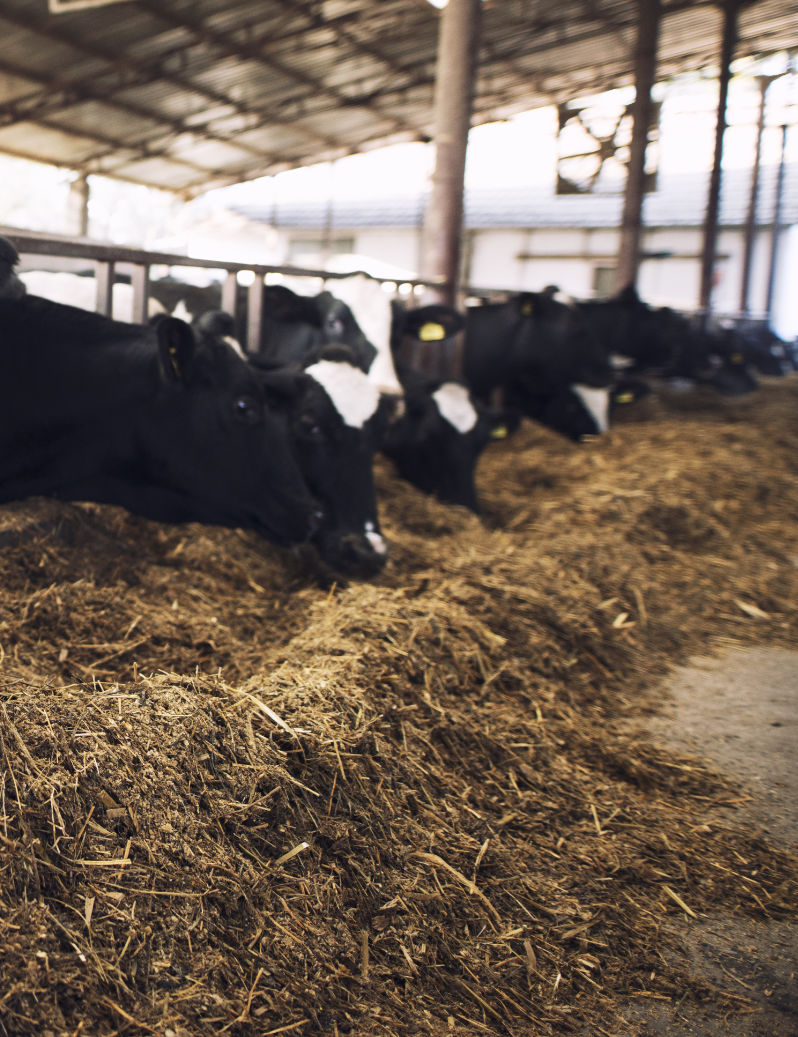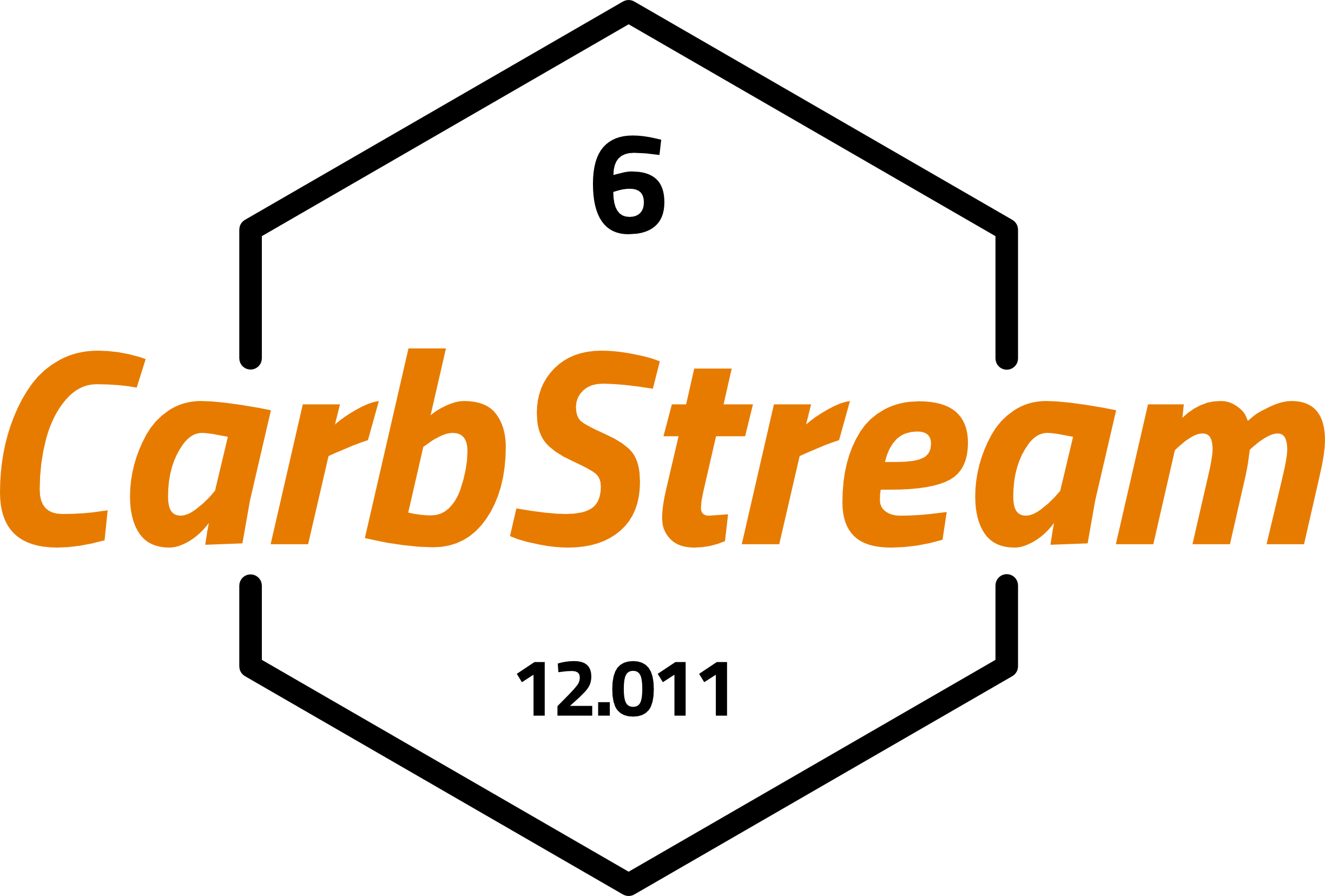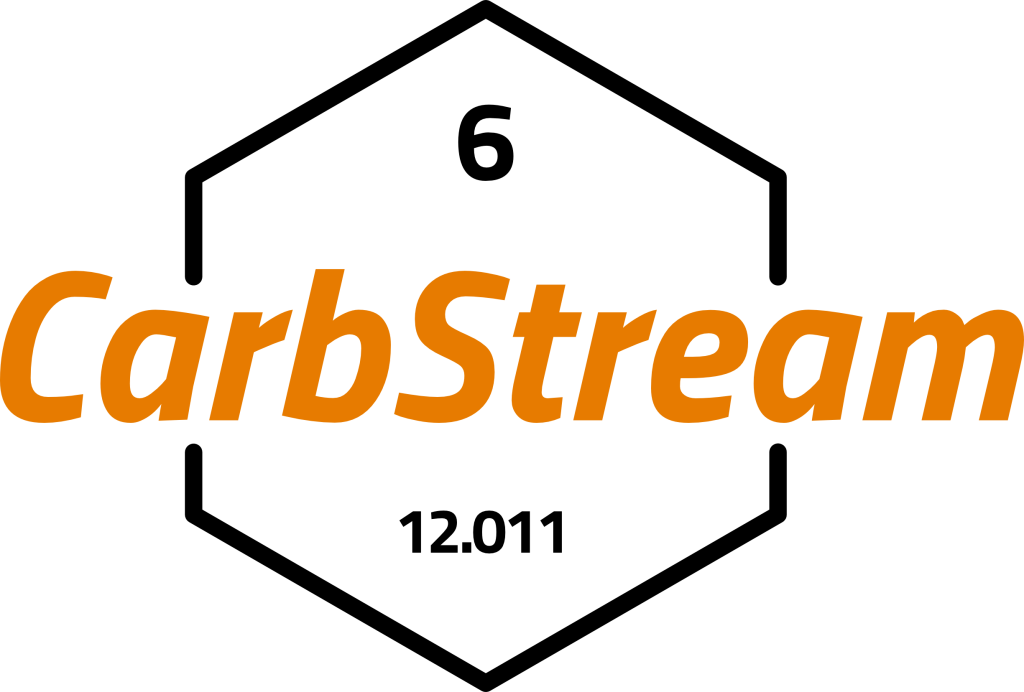
Feed coal for dairy cows and cattle fattening - admixture in silage
100 - 400g
92,6%
Carbon content as required
3 - 30%
Moisture according to requirements
1 - 5 mm
Grain size as required
0.00006%
Total 16 EPA-PAK per kilogram
In order to guarantee a high quality standard and our purity requirement, no other substances are added.
Versatile benefits for your animals
Feed charcoal is increasingly being used in livestock farming - both in feed and in the barn. The benefits for animal health, feed efficiency, product quality and barn climate are now well documented on many farms. In contrast to scientific studies, the focus here is on everyday experience: What benefits does biochar actually bring farmers in their daily work with animals?
Biochar is being used increasingly successfully in extensive and semi-intensive systems in cattle fattening and dairy farming. On pasture farms in particular, it promotes efficient nutrient recycling and sustainably improves soil fertility. At the same time, farmers report calmer behavior, less stress and significantly better feed conversion - for both fattening and dairy cows.
Practical experience with dairy cows
- Reduction in somatic cell counts, less mastitis
- Higher protein and fat content in milk
- More stable digestion: less diarrhea, firmer stools
- Lower veterinary costs, lower mortality
- Better fertility, more stable postnatal phase
- Metabolic relief: less acidosis, more stable liver values
Silage and stable effect
- More stable silage quality, less mold growth
- Lower risk of incorrect fermentation (clostridia)
- Reduced silage juices, drier storage
- Better liquid manure: thicker, less odor, easier to spread
- Healthier barn environment, less germ contamination, better animal welfare
- Sustainable cycle: Feed charcoal goes into the Stable/pasture and later as fertilizer in the field (CO₂ sink)
Practical experience with fattening cattle
- Higher weight gain, +8 % to +12 % daily
- Less stress, calmer behavior of the animals
- Stable digestion, less diarrhea, firm stools
- More efficient nutrient transport - carbon binds nutrients in the Digestive tract
- Less methane formation, better carbon footprint
- Better meat quality: less cortisol, balanced pH value
- Healthier immune system: better blood values (albumin, HDL/LDL)
- More economical in the long term: fewer animal losses, reduced
Treatment costs
Pasture and manure effect
- More fertile pastures: Higher humus content, better P and
K-availability - No additional fertilizer necessary: Manure with biochar sufficiently rich in nutrients
- Better fertilizing effect: slow release of nutrients via the floor
- Climate reduction: With 13 % biochar in the slurry: -77 % NH₃, -63 % N₂O, -100 % CH₄
- Sustainable cycle: Feed charcoal goes into the Stable/pasture and later as fertilizer in the field (CO₂ sink)
Quality you can rely on
Beim Einsatz von Futterkohle in der Tierhaltung ist höchste Reinheit und Qualität entscheidend für die Gesundheit Ihrer Tiere und für maximale Sicherheit im Stall. Die im Carbotec-1-Reaktor erzeugte Futterkohle, erreicht einen PAK-Gehalt von unter 0,2 – 0,6 mg/kg – einer der besten Werte am
Markt und deutlich unter dem Grenzwerten der geforderten Standards. Maximale Sicherheit für Ihre Tiere und Erträge.

